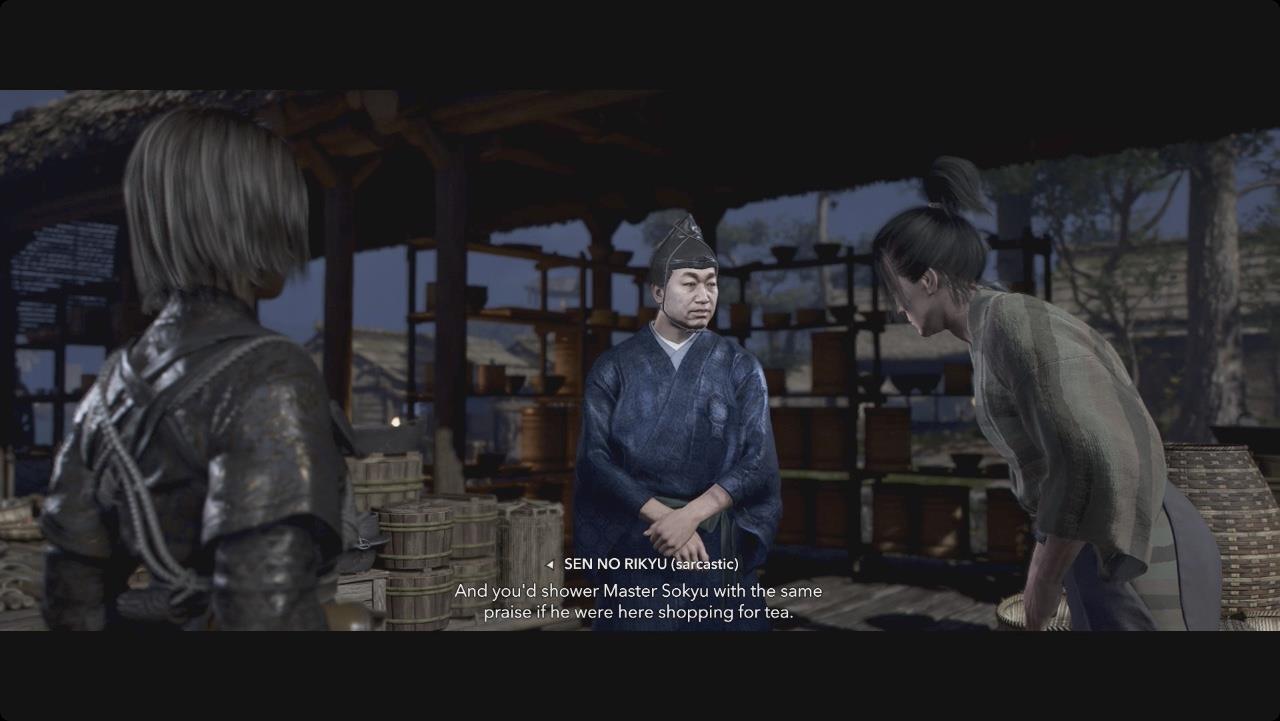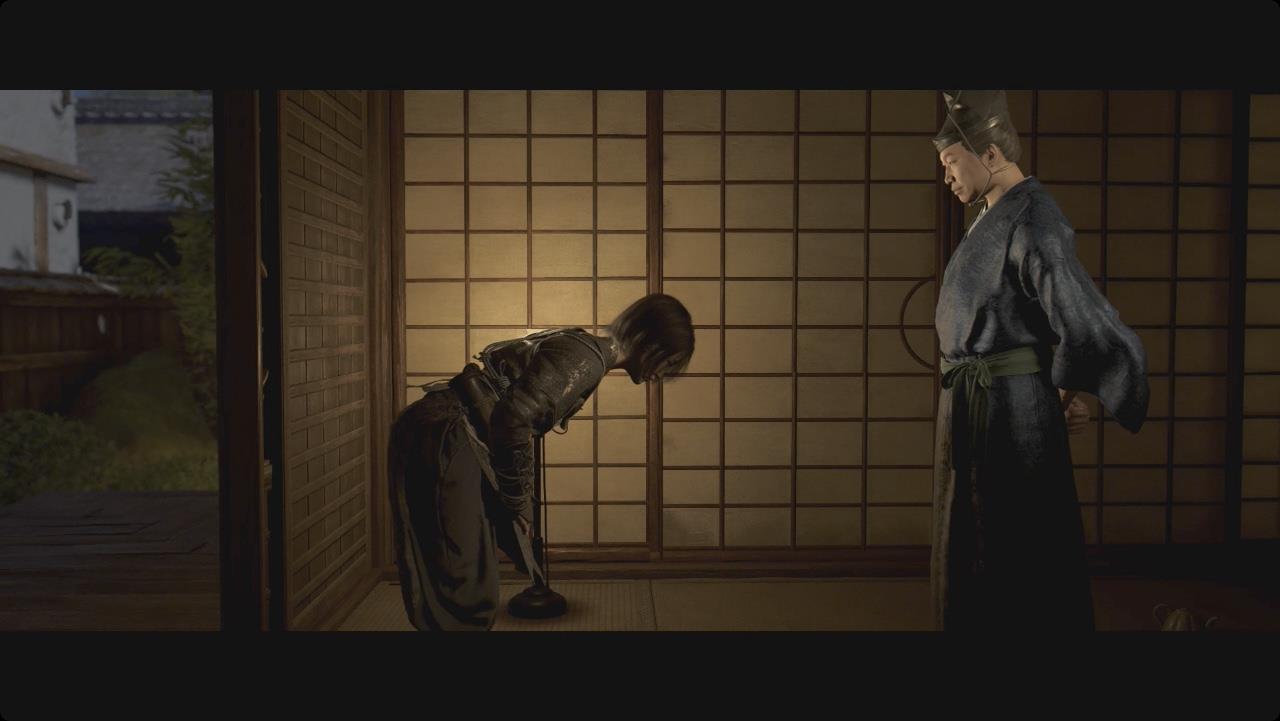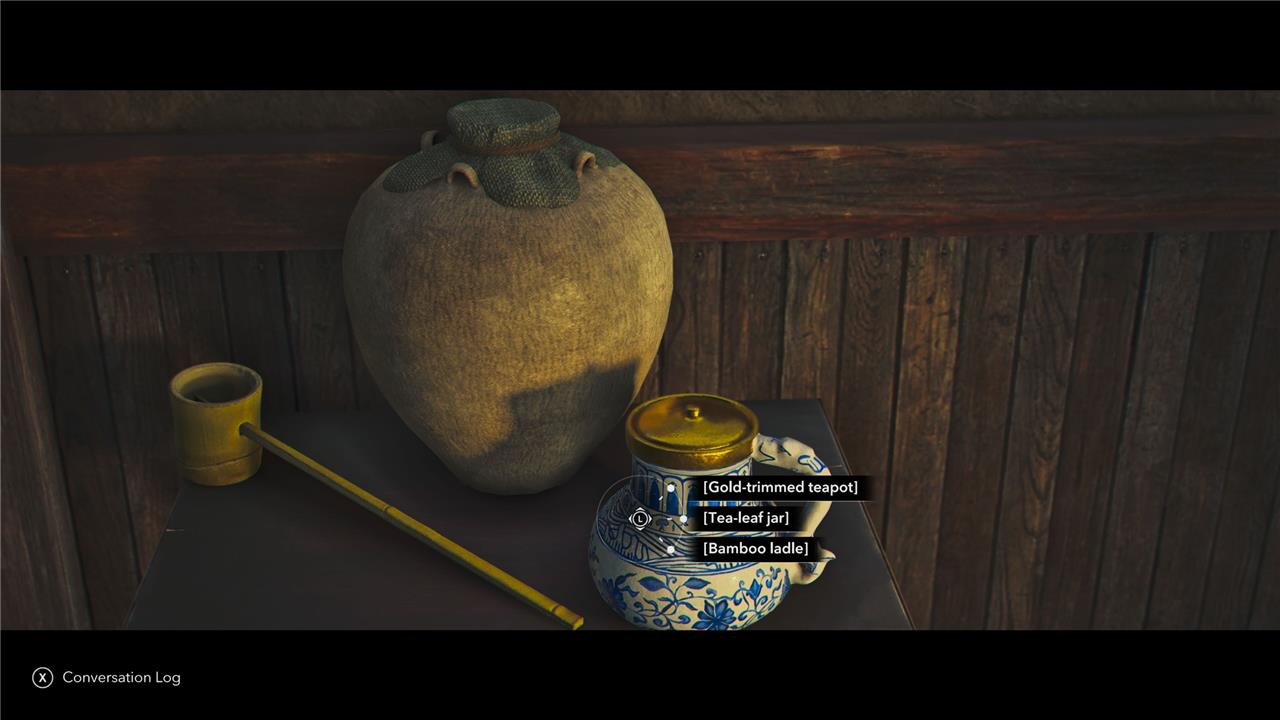In Assassin’s Creed Shadows, “The Perfect Gift” isn’t just a simple quest-it’s your invitation into the subtle world of tea ceremony espionage. As Naoe, you must master the art of etiquette, impress a legendary tea master, and choose the right offering to blend seamlessly among your targets. But with every bow and every gift, the stakes rise: will your choices open doors, or expose you as an outsider? Here’s how to navigate every step of this quietly tense mission, whether you’re playing on PC, PlayStation, or Xbox.
Our Assassin’s Creed Shadows guide will tell you how to start “The Perfect Gift,” where to find the tea merchant, and which gift to choose to complete the quest.
Tea merchant location in ’The Perfect Gift’
In the mission “The Perfect Gift” in Assassin’s Creed Shadows, the tea merchant is located at the outdoor market stalls in the northern part of Sakai, within the Izumi Settsu region. Players should head to the northern coastline of Sakai’s island and look for a large, impressive stall by the road where the merchant stands. Upon speaking with him, the merchant introduces you to Sen no Rikyu, the master of the tea ceremony, who will then guide you through learning proper tea etiquette essential for the quest’s progression.

“The Perfect Gift” quest will pop up under The Golden Teppo on the primary targets board of your Objectives menu. You’ll need to find a tea merchant who can teach you the decorum for a tea ceremony at Imai Sokyu’s house.
The tea merchant you need to speak with is in:
- Western Settsu
- Northern Sakai
- Outdoor stalls
Or you can just look at the map above.

You’ll find a tea merchant in the stalls along the norther shore of Sakai’s island. When you talk to him, he’ll introduce you to Sen no Rikyu, who is the person you’re actually looking for. (Sen no Rikyu becomes important later on when unlocking the Tea House for your Hideout, but no need to worry about that right now.)
After a quick conversation, you’ll follow him to his home.
What gift to pick in ’The Perfect Gift’
In “The Perfect Gift” mission of Assassin’s Creed Shadows, after learning proper tea ceremony etiquette from Sen no Rikyu, you are presented with a choice of three gifts to offer during the tea ceremony: a gold-trimmed teapot, a tea-leaf jar, or a bamboo ladle. The choice of gift does not affect the outcome of the mission, so you can select whichever one you prefer. This decision concludes the mission and prepares you for the upcoming tea ceremony events.

When you get to Sen no Rikyu’s house, he’ll start teaching you about the tea ceremony. When you begin, choose to bow halfway – tea ceremony participants are equals.

After some tea and some teaching, he’ll ask you to choose a gift to bring to Master Sokyu’s tea ceremony:
- Yixing tea pot
- Tea-leaf jar
- Bamboo ladle
There is no wrong choice, so just pick whichever one speaks to you. (Though for what it’s worth, the bamboo ladle is the canon mode choice.)
Before you can attend the tea ceremony, you’ll need to get a kosode via the “Dress for Success” quest. But if you’ve completed both that and “The Perfect Gift,” you can proceed to “The Tea Ceremony.”
What secrets does the ‘Perfect Gift’ quest reveal about Japanese tea culture in Assassin’s Creed Shadows
The ‘Perfect Gift’ quest in Assassin’s Creed Shadows offers a nuanced look at Japanese tea culture by weaving authentic elements of the tea ceremony into its gameplay. Players, as Naoe, must seek out a tea merchant to learn the etiquette required for such a ceremony, reflecting the importance of proper conduct and social harmony in Japanese tradition. The quest introduces Sen no Rikyu, a historical tea master, who instructs Naoe on key rituals: bowing halfway to show mutual respect among guests, and turning the tea bowl to the right before drinking-both gestures rooted in real tea ceremony customs that emphasize humility, equality, and attentiveness to detail.
The choice of gift-between a gold-trimmed teapot, tea-leaf jar, or bamboo ladle-mirrors the cultural practice of presenting thoughtful offerings, though the game ultimately allows any choice, highlighting that sincerity matters more than the object itself. Dialogue around the gifts also touches on the Japanese appreciation for subtlety and the tension between ornate and simple aesthetics, with characters debating the appropriateness of a gold-trimmed teapot versus plainer items.
Overall, the quest uses these mechanics and interactions to reveal how the Japanese tea ceremony is not just about drinking tea, but about demonstrating respect, social awareness, and the pursuit of harmony-core values of the culture during the period depicted in the game.
What does the tea ceremony etiquette in the game say about Japanese politeness customs
The tea ceremony etiquette depicted in Assassin’s Creed Shadows highlights several core aspects of Japanese politeness customs:
-
Respect and Bowing: The game requires players to reciprocate bows, with a half bow being the most appropriate and pleasing choice, mirroring the real-life emphasis on showing respect through precise gestures. Bowing is a fundamental part of Japanese etiquette, used to express gratitude, humility, and acknowledgment of social hierarchy.
-
Attention to Detail: Players must follow specific rituals, such as turning the tea bowl before drinking, which reflects the Japanese value of meticulousness and respect for tradition. These small, deliberate actions are essential in demonstrating mindfulness and appreciation for the host and the ceremony itself.
-
Omotenashi (Selfless Hospitality): The host’s role in anticipating the needs of guests before they are voiced is central to the tea ceremony and Japanese politeness in general. This spirit of hospitality ensures that every guest feels honored and cared for, reinforcing social harmony.
-
Equality and Humility: While the ceremony is rooted in hierarchy, it also strives for a sense of equality among participants, emphasizing humility regardless of social status. The careful selection and handling of utensils, as well as the subdued conversation, further underscore the importance of modesty and mutual respect.
-
Gratitude and Appreciation: Guests are expected to express gratitude for the host’s efforts, both verbally and through gestures, such as bowing and carefully handling the tea bowl. This reinforces the reciprocal nature of politeness in Japanese culture.
Overall, the game’s tea ceremony etiquette serves as a microcosm of Japanese politeness customs, where respect, attentiveness, humility, and harmonious social interaction are paramount.
